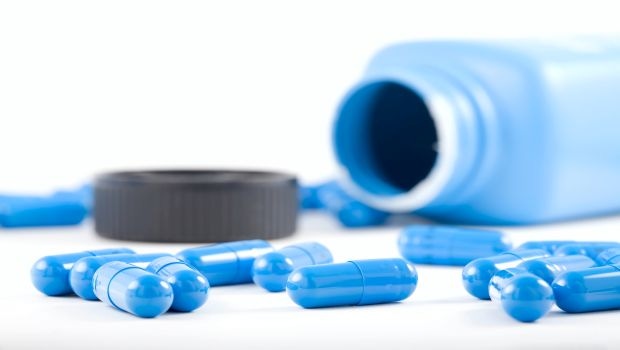Vendor qualification is a requirement—furthermore, to avoid warning letters and build a positive reputation in the marketplace, it is critical to have tested and safe ingredients.
March 4, 2015

Vendor qualification is required in the Code of Federal Regulations (CFR) 111.75. Furthermore, to avoid warning letters, build confidence and maintain a positive reputation in the marketplace, it is critical to have tested and safe ingredients.
There are many detailed points to CFR 111.75. One of the first steps is establishing the reliability of the supplier's certificate of analysis (CoA) through confirmation of the results of the supplier's tests or examinations. This can be accomplished by setting the specification of your choosing and then testing using one or more tests for identity, purity, strength and composition of the component or ingredient. Also, testing for limits of contamination that would lead to adulteration of the finished product is also needed per CFR 111.75 (c)(1). This testing verifies that the vendor shows identity and acceptable levels of active ingredient markers. It also ensures there is no microbial contamination, heavy metals, pesticide residue or other harmful contaminates.
When testing materials, it is important to test using a validated method of analysis and to ID against a validated reference standard. Many methods to conduct such analyses can be found via peer-reviewed journal publications and compendia from the US Pharmacopia, British Pharmacopia, Food Chemicals Codex, AOAC and FDA. Ask the vendor what methods it uses and if the lab that is testing the material is an ISO 17025:2008 accredited testing lab. If the lab is not ISO 17025:2008 accredited, then a full-lab qualification also needs to be considered.
The ISO 17025:2008 accreditation ensures the lab has been held to the highest quality standards. The International Organization of Standardization audits each ISO lab every year. These labs are required to have a quality management system, internal audits, SOPs, procedures and a qualified staff. They must also make continual improvements and use validated methods for testing, along with many other standards of quality.
CFR 111.75(a)(1)(i) mandates that companies conduct at least one appropriate test or examination to verify the identity of any component that is a dietary ingredient. With ID testing, it is important to use a validated method or a validated reference standard for comparison. Many botanicals do not have commercially available reference standards. In these cases, companies need to decide how they will determine the identity. Sometimes, they can choose to test for an active ingredient marker. Companies can also use a combination of testing methods to prove that the material is reflected accurately on the label.
It is important to determine how the vendor conducted all of the testing included on the CoA. CFR 111.75 (B) states the CoA must include a description of the test or examination method(s) used, limits of the test or examinations, and actual results of the tests or examinations. If they are using validated methods and show reliable CoA information from lot-to-lot, then this information will help to qualify the supplier as reliable. It is also up to the company to periodically reconfirm the supplier’s CoA, per CFR 111.75 (D).
Another key requirement (CFR 111.75 (C)) is to maintain documentation of how the supplier is qualified. Also, your quality control (QC) personnel should review and approve the documentation, setting forth the basis for qualification (and re-qualification) of any supplier per CFR 111.75 (E). This documentation is what will be needed to show how the process of qualification and re-qualification was established and maintained.
Here is an example of a CoA verification and understanding what to look for in the review of the CoA: Let’s say you would like to purchase a digestive enzyme blend. Your quality personnel review the CoA to determine that all the required information is listed according to CFR 111.75 (B). The CoA shows the blend contains amylase 3500 DU/g, protease 15,000 HUT/g and cellulase 500 CU/g. To determine whether the supplier is reliable, confirmation testing of the tests listed on the CoA and any contaminant testing needed to verify the accuracy of the CoA given with the blend should be conducted. The decision on the exact testing for verification purposes is up to you. When deciding what testing is needed for this example enzyme blend, you might test the three enzyme activity assays listed—DU, HUT and CU—along with carefully considering what adulterants might be in the blend that could contaminate your finished product. Microbiologic tests like aerobic plate count, coliform counts, E. Coli, yeast and mold, and salmonella are usually included in a standard micro testing package. Since arsenic, cadmium, mercury and lead are usually included in a standard heavy metals testing package, consider testing for heavy metal contamination. It is always a good idea to do a little research and determine if there are any other tests that would be a good quality check for this type of material. Once all the confirmation testing is completed on a pre-determined number of CoA’s from this supplier, and when all the testing is documented to qualify that supplier, then you are able to reduce testing. This would allow you to conduct an appropriate identity or assay test for the material going forward and use the supplier CoA information without doing the full extent of testing on each lot. Finally, it’s important to consider adulterants that might contaminate your finished product batch each time. Again, like microbiological or other contaminants, these might vary from batch to batch.
Vendor qualification is the key to safe and high-quality ingredients. We must verify our supplier CoA and do the appropriate testing to produce the best products on the market. It will take us all working together to ensure the quality of our supply chain.
To help increase your market credibility, be sure to register for GMP Training at Ingredient Marketplace, April 7 to 9, in Orlando.
Tammy Blakemore guides SORA Labs with her expertise in business management. Blakemore’s unique combination of science and sales makes her an invaluable asset to the company.
About the Author(s)
You May Also Like






.png?width=800&auto=webp&quality=80&disable=upscale)